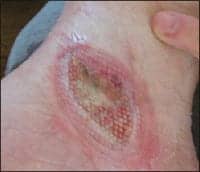08-10-2006
Warm-weather activities can result in a litany of aches and pains that take the fun right out of summer. But according to a Raleigh, NC, holistic health care specialist, pinpointing and healing what hurts may very well start with having your picture taken.
Marc Cutler, founder of Advanced Healthcare Solutions, offers Digital Infrared Thermal Imaging (DITI) technology as a way to target the precise point of a patients pain. Inflamed cells produce heat, and DITI utilizes a heat-sensing camera to identify the exact region of the body that has been aggravated or injured, which results in more effective diagnoses and treatment, Cutler says.
Treating pain has traditionally been a tricky thing, he says. Patients will obviously have a good sense of what hurts, but often its hard for them to know whether the pain stems from a joint, a muscle, or a grouping of nerves. DITI is a wonderful diagnostic tool for injuries and chronic pain alike because it shows us exactly where the pain is coming from and that allows us to deliver the best treatment options.
Thermography, which is FDA-approved and often covered by medical insurance, is as simple as having a picture taken. DITI does not use any form of radiation. There is also little need for body manipulation, which can be very painful in the case of certain injuries.
While thermography has undergone extensive clinical research since the late 1950s, the technology has been perfected only within the last 20 years, he says. Cutler, who is president of the North Carolina Acupuncture and Oriental Medicine Association, and has also passed the two-year thermography certification course, is excited about the latest advances in this detection tool.
DITI is an extremely effective way to detect and treat a full spectrum of injuries, he says. The use of DITI is especially exciting for those who suffer from chronic pain because it allows us to move away from the term pain management and focus instead on its elimination. And at the end of the day, I think people who suffer from any kind of pain would much rather have it gone altogether than have to manage it.
[SOURCE: PR Leap, July 29, 2006]




